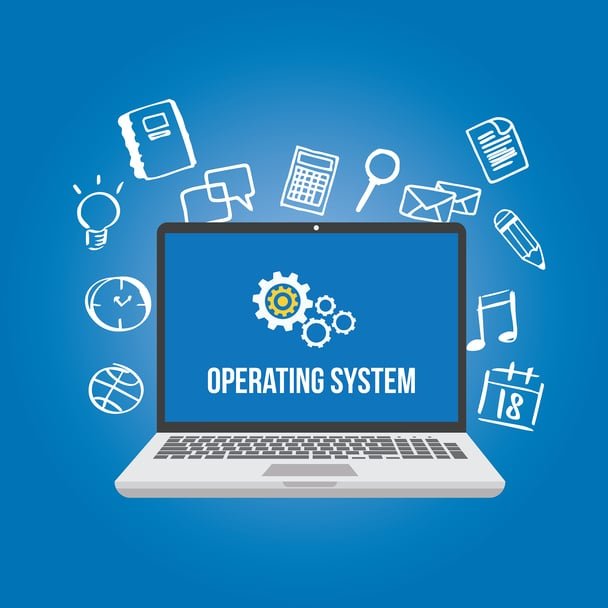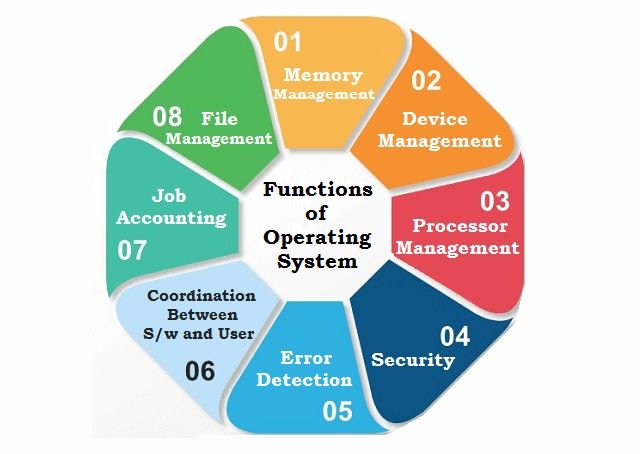Back to: COMPUTER SCIENCE JSS2
Welcome to Class !!
We are eager to have you join us !!
In today’s Computer Science class, We will be discussing the Functions of an Operating System. We hope you enjoy the class!

FUNCTIONS OF AN OPERATING SYSTEM
- Boot process: When the computer is switched on, the boot program that is resided in ROM initialize the setup of the computer, the then load the rest of the operating system from the banking storage (hardware) in the RAM.
- The OS does the work of sharing and accounting of the computer resources.
- The operating system handles the input and output of data and information.
- The OS handles the management of memory.
- The operating system handles the management of the hardware.
- The operating system handles multitasking and multiprogramming.
- The operating system handles protection and error trending.
- The operating system acts as an interface between the user and the computer
- The operating system controls interaction and program control

Resource Allocation:
The Operating System ensures the proper use of all the resources available by deciding which resource to be used by whom for how much time. All the decisions are taken by the Operating System.
Control over system performance :
The OS monitors overall system health to help improve performance, records the response time between service requests and system response to having a complete view of the system health. This can help improve performance by providing important information needed to troubleshoot problems.
Security:
The operating system uses password protection to protect user data and similar other techniques. it also prevents unauthorized access to programs and user data.
Coordination between other software and users:
Operating systems also coordinate and assign interpreters, compilers, assemblers and other software to the various users of the computer systems.
Device Management:
An OS manages device communication via their respective drivers. It performs the following activities for device management.
- Keeps tracks of all devices connected to the system.
- Designates a program responsible for every device known as the Input/output controller.
- Decides which process gets access to a certain device and for how long.
- Allocates devices in an effective and efficient way.
- Deallocates devices when they are no longer required.
We have come to the end of this class. We do hope you enjoyed the class?
Should you have any further question, feel free to ask in the comment section below and trust us to respond as soon as possible.
In our next class, we will be talking about Number Base. We are very much eager to meet you there.

This is awesome!
Good morning,plz I have a question. what are the properties of an operating system?